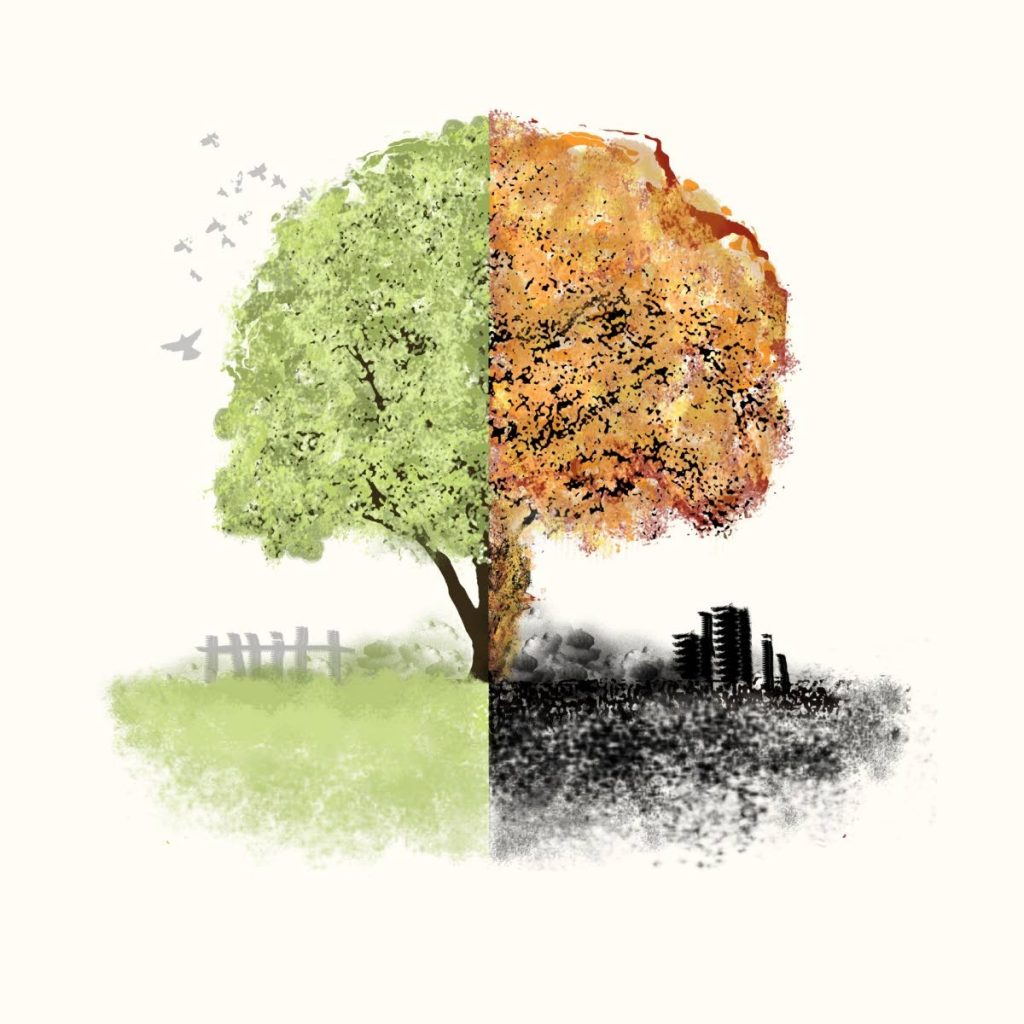How will we emerge from covid19 pandemic?

KIRAN MATHUR MOHAMMED and EDWARD INGLEFIELD
kmmpub@gmail.com
There’s a coin spinning in the air.
It lands on one side. On the face: dystopia. Millions have died. Millions more suffer. Millions have lost jobs and savings. Hope is scarce. The pandemic’s effects linger on. Economic wounds have festered.
We grasp for the scraps that remain; survival our goal.
The fear of the “other” persisted beyond the virus. Handshakes and hugs are forgotten, touch replaced with isolation. Nations and people turned inward. Countries’ borders are shut as interpersonal borders expand to a neat six-foot radius. We are angry, frustrated, and lonely.
Our values are lost. The threat of “the next virus” looms over us. Fear drives us further into our bunkers. The only game is zero-sum. This gave all the impetus to states already swollen by temporary spending (not that it needed much encouragement) to step in and “repurpose” their handy contact-tracing tools: the true dawn of the surveillance state. As the virus subsided, the populists emerged. Migrants were the first, but not the last to feel the brunt.
But wait. We pick up the coin and look at the other side. A very different picture emerges. The greatest crisis in a generation has wiped the slate clean, allowing hungrier, newly ambitious people to renegotiate long-held truths and reset value systems.
Covid19 forced us into our homes, where we got to work. We built resilience. We developed innovative solutions. We grew closer to our families and learned new skills. Ossified value systems were dissected for the first time. We seized hope from destitution.
Struggle was our fuel. "Hustle" turned to innovation. You put up with your family and kept what traditions you could when the economy reopened. Your fresh ingredients increasingly came from local farmers. You came closer to friends than ever before. It turned out a video chat or virtual catch-up wasn’t that hard.
Nature became a blessing. Daily walks were now cherished. The air became cleaner, and the roads mercifully clearer – more people work from home. Having come together to face one crisis, we were ready to meet the next and take the tough decisions to buttress society against the next great crisis: climate change.
This is no utopian vision. We are already questioning old value systems. We have recognised our power to create a freer, more inclusive, more resilient society. We have demonstrated that we can take collective action towards a common good. Innovations from 3D printed ventilators to novel new medications have shown the tremendous power of individual freedom and enterprise, when freed from hidebound regulations and turned towards the common good. People like Dr David Fajgenbaum and his team at the University of Pennsylvania are using their knowledge of rare diseases to quickly repurpose existing medications to tackle the virus head-on.
In many ways we have already begun redirecting our thought processes to identify what really matters. This is only natural: when you have less, you must focus on what counts. Globally, the response has been universal. People critically need technology to connect and learn. We are demanding better healthcare. More than ever we understand the need to take care of minds and bodies and secure access to fresh food.
We’ve shown ourselves very capable of microscopically scrutinising any stranger lest they carried some hint of contagion. Can we now channel that same level of scrutiny towards the mutually-accepted norms that have restricted our ability to grow or solve problems?
Let’s socially distance ourselves from obsolete values. We must resist the temptation to descend into recrimination and insularity. We must repudiate any moves to hold to a “crab in barrel” mentality. The danger of zero-sum thinking is acute. We must meet it with strength and optimism. Everyone must work together to rebuild and create wealth.
For people, companies or countries, self-reliance and cooperation are not mutually exclusive. Look at any anthill or computer network. Both nature and technology have shown that the most resilient systems are those that combine tight networks of support alongside heaps of redundancy.
Policymakers globally have recognised this and responded. The roadmap to recovery is being penned by some of the brightest minds in the world.
But this will be useless without buy-in and recognition from the people most affected: the lonely, the isolated, the vulnerable and the left-behind. Our willingness to let go has to be matched with our willingness to take on board the new and the different.
The coin weighs heavy in our hands. Knowing what lies on one side, why would we throw our future to chance? Let’s rig the game.
Kiran Mathur Mohammed is a social entrepreneur, economist and businessman. Edward Inglefield is an entrepreneur and former chef. Inglefield and Mohammed are co-founders of medl, an IDB Lab-backed social-impact enterprise.


Comments
"How will we emerge from covid19 pandemic?"